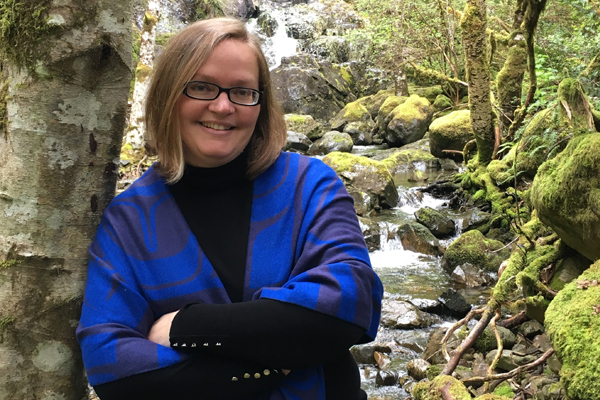Renewable energy and reconciliation
May 17, 2017
Share
Queen’s University researcher Heather Castleden (Geography and Planning/ Public Health Sciences) has received a $2 million team grant from the Canadian Institutes of Health Research (CIHR) to lead an interdisciplinary research program on Indigenous leadership in renewable energy development for healthy communities.

The program of research, titled A SHARED Future: Achieving Strength, Health, and Autonomy through Renewable Energy Development for the Future, will bring together more than 75 Indigenous and non-Indigenous academics, as well as representatives from various Indigenous and settler governments and organizations across Canada, to examine how fostering Indigenous leadership in renewable energy development has the potential to deliver positive community benefits and spur efforts towards reconciliation.
“Much of my research has involved a Two-Eyed Seeing framework – something I learned from Mi’kmaq Elder Albert Marshal and his colleague, Cheryl Bartlett, who is a retired biologist and former Canada Research Chair in Integrative Science,” explains Dr. Castleden, who holds the Canada Research Chair in Reconciling Relations for Health, Environments, and Communities. “The guiding principle of Two-Eyed Seeing is to bring the best of Indigenous and Western knowledge systems together to try to answer research questions more comprehensively and whole-istically.”
Through this program of research involving multiple projects, Dr. Castleden and her colleagues will examine stories of success in renewable energy development. Amongst other criteria, the research will determine whether Indigenous communities, governments, and organizations are using a business-as-usual model, a joint venture model, a co-operative, or an Indigenous leadership model in their collaborations. The team will also examine how these efforts have the potential to lead towards new and restored understandings for integrative health by reconciling and healing relations between the Indigenous and settler communities, as well as the relationship with the environment.
“For the past 15 years, Dr. Castleden has partnered with Indigenous communities across Canada in conducting community-based, participatory research on issues such as social and environmental justice and health equity,” says John Fisher, Interim Vice-Principal (Research). “This project will not only bring about a better understanding of the impacts of renewable energy development on Indigenous communities, it will also foster a deeper understanding of the requirements necessary to overcome barriers that address relationships and support for Indigenous populations and their communities, in order for Canadians to pursue meaning reconciliation.”
Indigenous Ways of Knowing will play a central role throughout the design of the program and its various projects, in conceptualizing the team’s research approach, organization and methodology. Dr. Castleden explains that doing so allows the research team to consider issues in a broader and more whole-istic nature. She adds that Indigenous leadership and efforts towards self-determination and autonomy have led to broader inclusion of Indigenous perspectives and knowledge in academic research.
“We have been trained in academia to specialize in our fields, which makes it very difficult to see a problem from multiple generations back or forward, to translate from the individual to the community and beyond – that’s where Indigenous knowledge systems bring the breadth of the issue to light,” she says. “This is especially true with health research. There is, with many Indigenous knowledge systems, the ability to see health issues as being not just about physical health or mental health but also emotional health, cultural and spiritual health and well-being of people. We don’t tend to do that in Western science, so again that’s what makes this make sense.”
Dr. Castleden and her team are one of nine team grants to receive funding under the CIHR Environments and Health Signature Initiatives program. The program aims to support researchers and teams investigating how various sectors can collaborate to promote healthy environments and reduce exposure to the causes of poor health.
For more information on the A SHARED Future project, please visit the HECLab website.